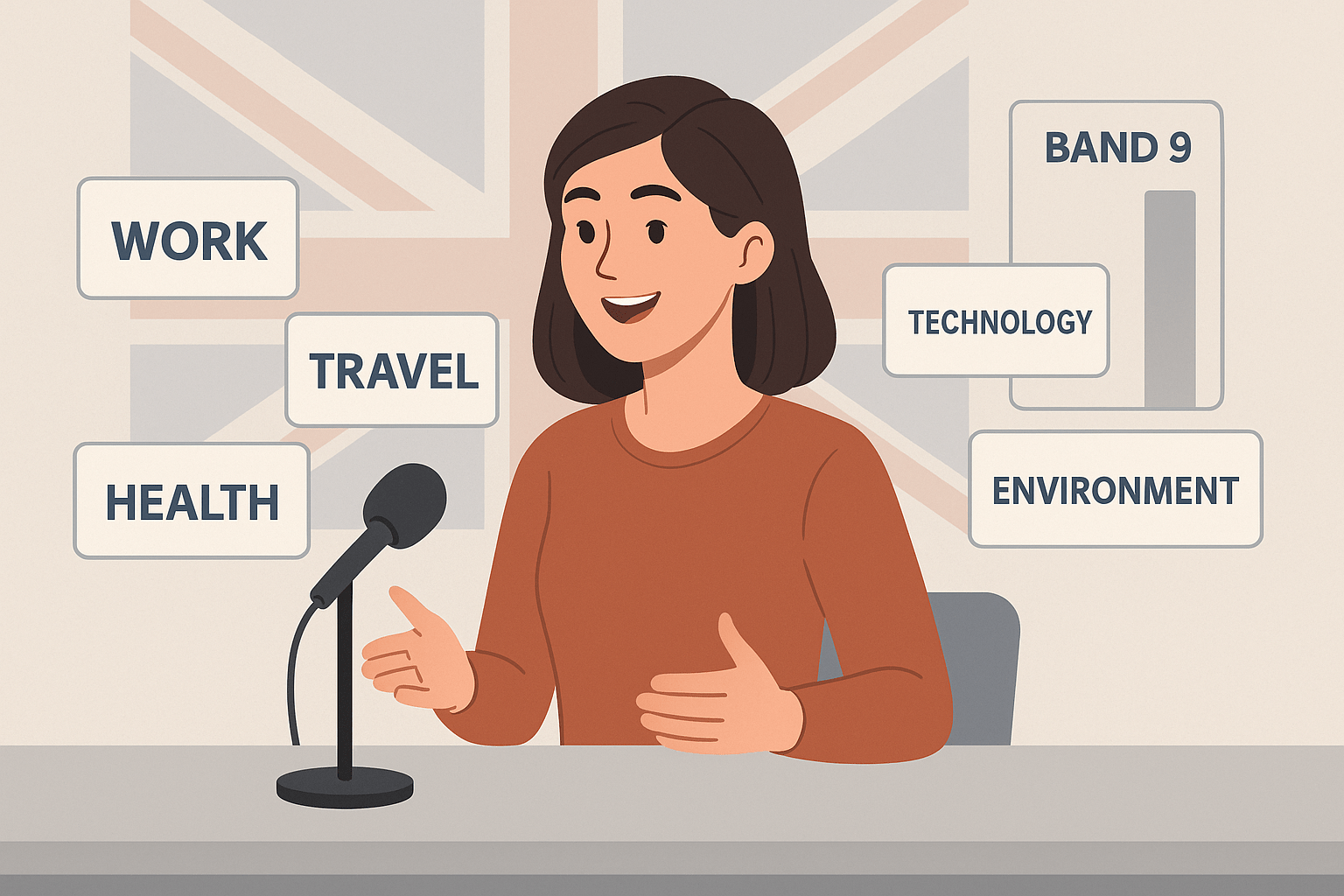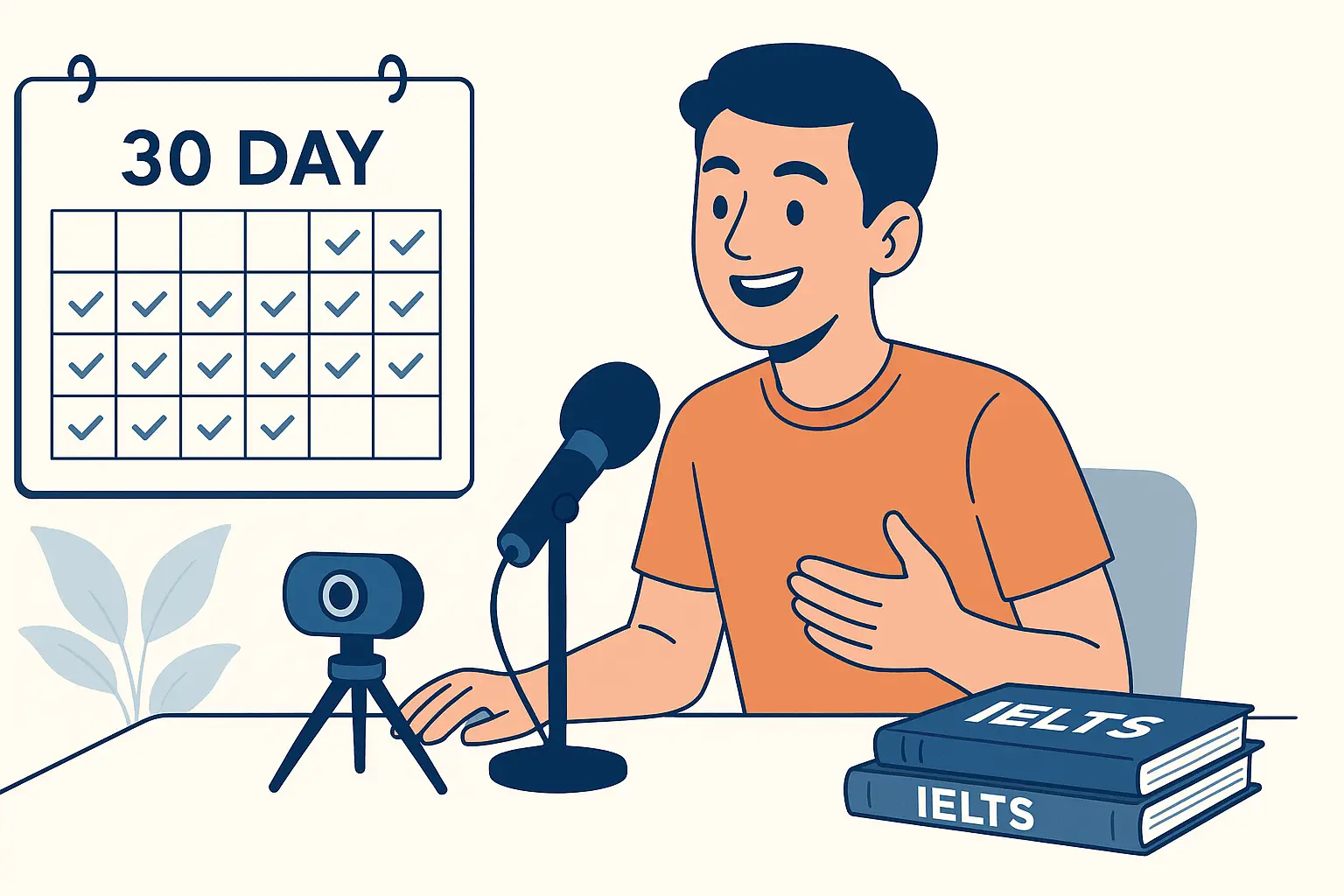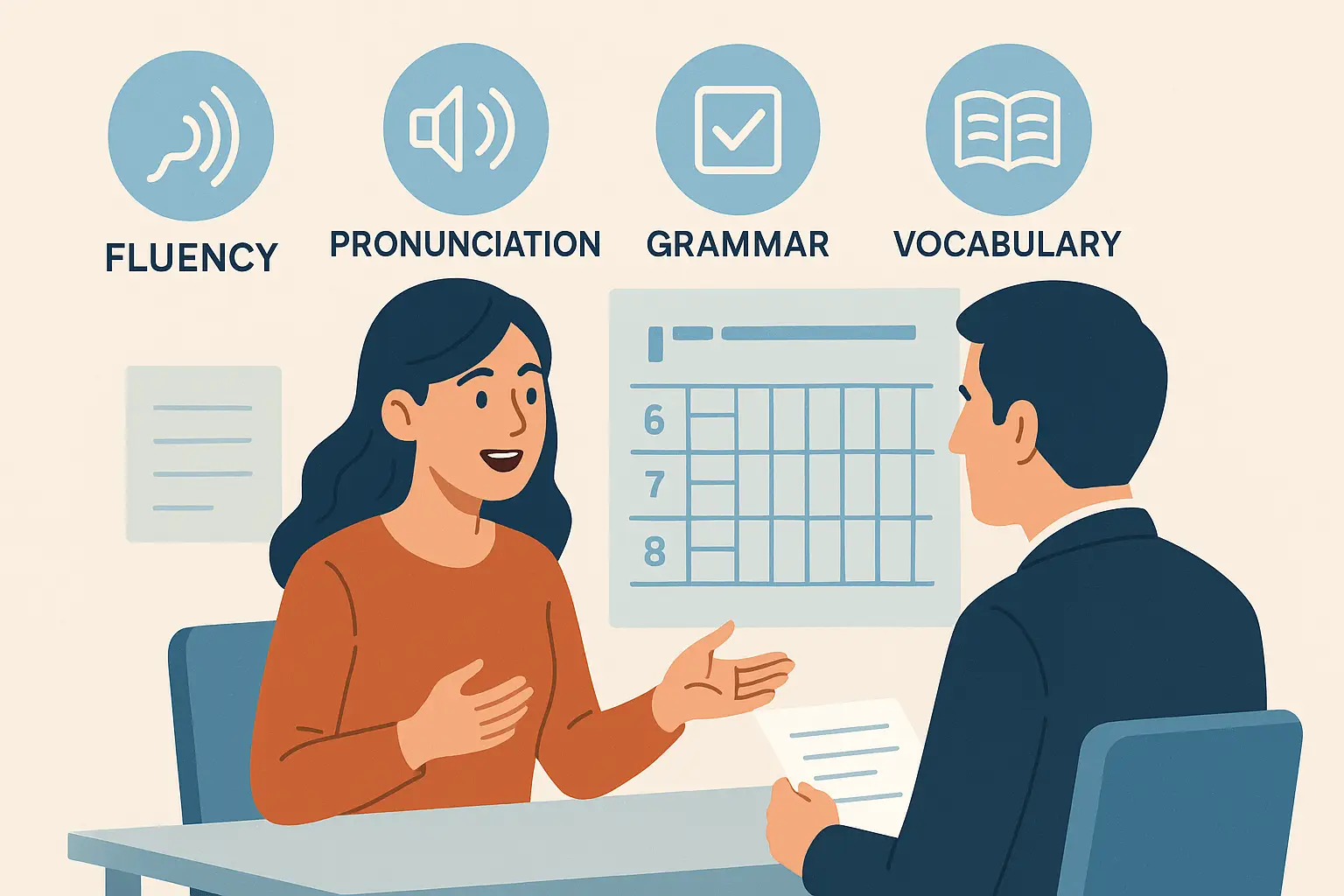- Why Topic-Wise Vocabulary Matters in IELTS Speaking
- Topic 1: Work and Career Vocabulary
- Topic 2: Travel and Holidays Vocabulary
- Topic 3: Technology and Digital Life Vocabulary
- Topic 4: Health and Lifestyle Vocabulary
- Other Common Topics That Require Vocabulary Prep
- How to Practise Topic-Wise IELTS Speaking Vocabulary
- Topic-Wise IELTS Speaking Vocabulary
When it comes to achieving a high band score in the speaking test, topic-wise IELTS speaking vocabulary is the secret weapon I recommend to all of my international students. As an IELTS teacher who has worked with learners from over 30 countries, I’ve consistently seen how mastering vocabulary by topic improves not just fluency, but also confidence and coherence.
Whether you’re describing your dream job, discussing the impact of technology, or talking about staying healthy, having the right vocabulary at your fingertips can make or break your performance in Part 1, Part 2, or Part 3 of the speaking test.
Why Topic-Wise Vocabulary Matters in IELTS Speaking
One of the biggest struggles my students face is knowing what to say when a topic catches them off guard. For example, a student from Vietnam once panicked when asked about public transport—not because she didn’t understand the topic, but because she lacked the vocabulary to express her ideas naturally.
This is where topic-wise IELTS speaking vocabulary becomes essential. Instead of trying to memorise thousands of random words, you can build clusters of relevant phrases tied to likely speaking topics. This not only helps you respond more confidently but also impresses the examiner with your lexical resource—a key band descriptor in the IELTS speaking marking criteria.
Topic 1: Work and Career Vocabulary
Work-related topics are incredibly common, especially in Part 1 and Part 3. Students often default to basic words like “job” or “office,” but you need to stretch your range.
Here’s what I teach:
- Occupation instead of just “job”
- Work-life balance, freelancing, remote work, and career progression
- Phrases like “I’m currently pursuing a career in…” or “There’s a lot of scope for advancement.”
Many learners also struggle to talk about job satisfaction. Try saying, “A positive work environment really motivates me to perform at my best.”
Topic 2: Travel and Holidays Vocabulary
A question like “Do you enjoy travelling?” might seem simple, but don’t stop at “Yes, I love it.”
You should aim to use:
- Cultural immersion, travel itinerary, eco-tourism, off the beaten path
- Useful expressions: “I enjoy discovering hidden gems and immersing myself in local culture.”
During a mock test, one of my students described her trip to Japan using phrases like “well-planned itinerary” and “authentic cultural experiences.” She jumped from Band 6.5 to Band 7.5 just by upgrading her travel vocabulary.
If travel comes up in your test, give depth with vivid expressions.
Topic 3: Technology and Digital Life Vocabulary
Technology is another high-frequency theme, especially in Part 3. Students often overuse the word “technology” without being specific.
Use topic-wise IELTS speaking vocabulary such as:
- Artificial Intelligence, cutting-edge devices, data privacy, digital detox
- Say things like: “Social media has become a double-edged sword—useful but often addictive.”
I often recommend students visit British Council’s Take IELTS site to explore sample questions on tech and society.
Topic 4: Health and Lifestyle Vocabulary
This topic pops up when students least expect it. You may be asked about your daily routine, diet, or health systems.
Here’s what I encourage:
- Balanced diet, mental well-being, sedentary lifestyle, healthcare access
- Use: “To stay healthy, I try to follow a balanced diet and avoid processed foods.”
A student once froze when asked, “How do people in your country stay fit?” Now, I always make sure learners prepare vocabulary around exercise habits, wellness trends, and public health campaigns.
Other Common Topics That Require Vocabulary Prep
Aside from the four core topics above, don’t ignore these:
- Environment: Use “sustainable practices”, “carbon footprint”, and “eco-conscious choices.”
- Education: Try “lifelong learning”, “academic workload”, or “educational equity.”
- Family & Relationships: Upgrade to “generation gap”, “nurturing relationships”, or “family dynamics.”
All of these fall under topic-wise IELTS speaking vocabulary, and are covered in depth in my complete IELTS Speaking guide and speaking expressions post.
How to Practise Topic-Wise IELTS Speaking Vocabulary
✅ Choose one topic per day.
✅ Create a mind map of relevant words, idioms, and example sentences.
✅ Record yourself answering common IELTS questions using those words.
✅ Get feedback from a teacher—or better yet, use IELTS ZONE’s model answers and comparison tips.
Topic-Wise IELTS Speaking Vocabulary
Q1. Can I use idioms in IELTS Speaking?
Yes—but only when they’re natural and contextually appropriate. Overused or forced idioms can hurt your score.
Q2. What if I forget vocabulary during the test?
Paraphrasing is your best friend. If you forget “eco-tourism,” say “travelling in a way that respects nature.” The IDP IELTS site has tips on paraphrasing effectively.
Q3. How many words should I learn per topic?
Start with 10–15 high-impact words per topic. Quality over quantity. Ensure you can use each one in a full sentence.
Q4. Do I need to know vocabulary for all IELTS topics?
Focus on the most common IELTS topics first: Work, Travel, Technology, Health, Education, Environment, and Relationships.
By mastering topic-wise IELTS speaking vocabulary, you’ll be able to speak naturally, confidently, and fluently across a wide range of real-life topics—exactly what examiners want.
Now, let’s start building your vocabulary one topic at a time.





